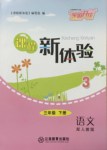III.阅读理解
People aren’t walking any more—if they can figure out a way to avoid it.
I felt superior about this matter until the other day I took my car to mail a small parcel. The journey is a matter of 281 steps. But I used the car. And I wasn’t in any hurry,either. I had merely become one more victim of a national sickness :motorosis.
It is an illness to which I had thought myself im-mune (免疫的) ,for I was bred in the tradition of going to places on my own two legs. At that time,we re-garded 25 miles as a good day's walk and the ability to cover such a distance in ten hours as a sign of strength and skill. It did not occur to us that walking was a hardship. And the effect was lasting. When I was 45 years old I raced —and beat—a teenage football player the 168 steps up the Statue of Liberty.
Sudh enterprises today are regarded by many middle-aged persons as bad for the heart. But a well-known British physician,Sir Adolphe Abrahams,pointed out recently that hearts and bodies need proper exercise. A person who avoids exercise is more likely to have illnesses than one who exercises regularly. And walking is an ideal form of exercise—the most familiar and matural of all.
It was Henry Thoreau who showed mankind the richness of going on foot. The man walking can learn the trees,flowers,insects,birds and animals,the significance of seasons,the very feel of himself as a living creature in a living world. He cannot learn in a car.
The car is convenient means of transport,but we have made it our way of life. Many people don't dare to approach Nature any more;to them the world they were born to enjoy is all threat. To them security is a steel river thundering on a concrete road. And much of their thinking takes place while waiting for the traffic light to turn green.
I say that the green of forests is the mind's best light. And none but the man on foot can evaluate what is basic and everlasting.
1. What is the national sickness?
A. Walking too much.
B. Travelling too much.
C. Driving cars too much.
D. Climbing stairs too much.
2. What was life like when the author was young?
A. People usually went around on foot.
B. People often walked 25 miles a day.
C. People used to climb the Statue of Liberty.
D. People considered a ten-hour walk as a hardship.
3. The author mentions Henry Thoreau to prove that.
A. middle-aged people like getting back to nature
B. walking in nature helps enrich one's mind
C. people need regular exercise to keep fit
D. going on foot prevents heart disease
4. What is compared to‘‘a steel rever”in Paragraph 6?
A. A queue of cars. B. A ray of traffic light.
C. A flash of lightning. D. A stream of people.
5. What is the author^ intention of writing this passage?
A. To tell people to reflect more on life.
B. To recommend people to give up driving.
C. To advise people to do outdoor activities.
D. To encourage people to return to walking.

 芝麻开花课程新体验系列答案
芝麻开花课程新体验系列答案
 芝麻开花课程新体验系列答案
芝麻开花课程新体验系列答案